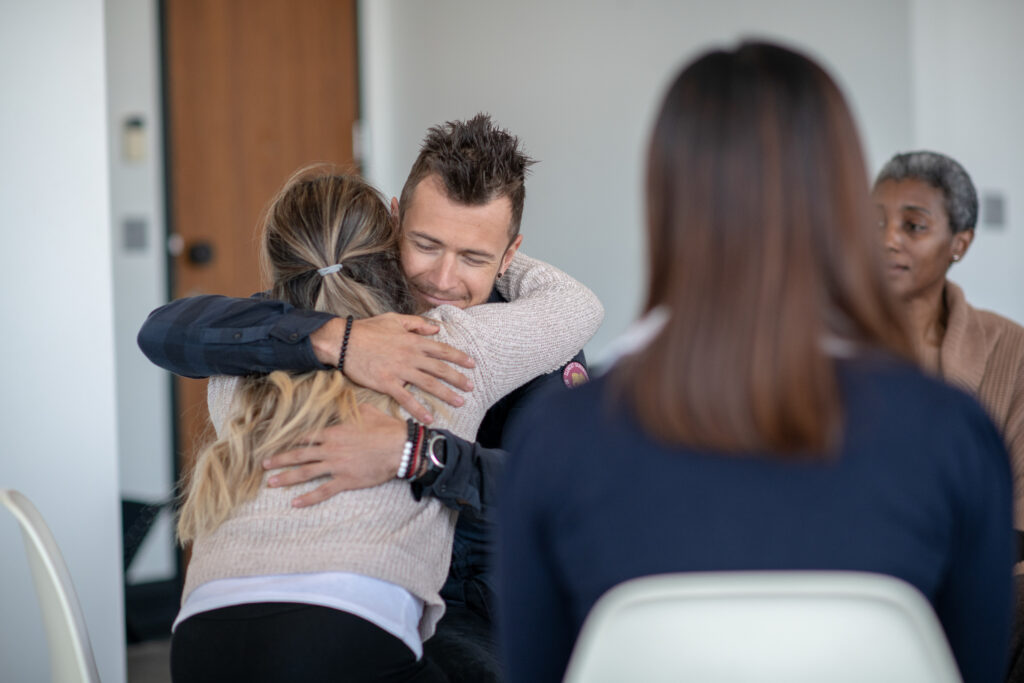How PHP Treatment Aftercare Programs Can Help You Maintain Wellness & Sobriety
Written and medically reviewed by the clinical team at Continuum Outpatient Center, including licensed therapists, addiction specialists, and medical professionals.
What is PHP Treatment Program Aftercare?
PHP treatment program aftercare services offer special support for people after completing a partial hospitalization program (PHP).
It’s designed to help patients solidify the skills and coping mechanisms they’ve acquired during the program and to facilitate reintegration into daily life while maintaining sobriety and overall well-being.

Differences from Other Aftercare Modalities
- Intensity and structure: It’s more intensive than standard outpatient aftercare because it caters to those who’ve just stepped down from a highly structured program. This intensity is crucial as it provides a gradual transition rather than a sharp drop in support.
- Continuity of care: PHP treatment program aftercare looks at patient progress, challenges, and goals after the main program. This means recovery continues in a way that’s right for each person. Often, patients have the same therapists from the PHP, which may help to maintain a sense of familiarity and trust in the recovery journey.
- Community and support networks: People get access to special resources and networks for PHP graduates. These can provide a sense of belonging and support from others who’ve been through similar challenges.
Key Components of PHP Treatment Program Aftercare
Recovery can pose additional challenges after treatment. People may feel a sense of stress or pressure to revert to old coping mechanisms, especially when faced with familiar triggers. PHP treatment program aftercare services provide people with a framework to navigate these challenges and stay on track.
Continued Therapy
- Maintain a positive attitude
- Build healthy relationships
- Recognize and respond to triggers
Medication Management
If medications are part of the treatment plan, check-ins and adjustments may be important for better treatment outcomes. This can help to manage potential side effects, monitor progress, and address any concerns.
Lifestyle and Wellness Coaching
Skill Development
- Problem-solving
- Communication
- Stress management
Alumni Services or Support Groups
Types of Support in PHP Treatment Program Aftercare
Educational Support
- The science of addiction
- Relapse prevention
- Coping strategies
Spiritual Support
Practical Support
Peer Support as a Pillar of Recovery
- Mentorship: Partnering with a mentor or sponsor who has considerable experience in recovery and can offer guidance and encouragement.
- Peer-led groups: Taking part in group sessions led by people who’ve experienced recovery success and offer insight, support, and accountability.
- Online communities: Joining online forums or social media groups where people can access support and advice at any time.
Evidence-Based Practices in PHP Treatment Program Aftercare
- Cognitive behavioral therapy (CBT) to help recognize and change negative thought patterns and behaviors
- Dialectical behavioral therapy (DBT) to help manage intense emotions and develop healthy coping skills
Benefits of Applying CBT and DBT
Addressing Relapse Prevention
- Emotional: Feeling overwhelmed, anxious, or depressed
- Mental: Obsessive thinking about substances or past behaviors
- Physical: Changes in sleep patterns or appetite, headaches, fatigue
- Behavioral: Isolating from family and friends, avoiding therapy or support group meetings
- Situational: Encountering triggers or high-risk situations, such as old friends who still use drugs or alcohol
Identifying Personal Triggers
It’s important for people to regularly assess their emotional and mental state and be honest with themselves about any cravings or thoughts of substance use. Once triggers are identified, develop a set of coping strategies for each. Here are some ways to cope with various triggers:
Stress
- Identify healthy ways of coping with stress, such as exercise, meditation, or talking to a trusted friend or family member
- Practice relaxation techniques, such as deep breathing or progressive muscle relaxation
- Engage in enjoyable activities to alleviate stress and boost mood
Social Isolation
- Make an effort to connect with supportive friends and family members on a regular basis
- Find new hobbies or activities that foster social interaction and promote positive relationships
- Volunteer in the community to build social connections and give back
High-Risk Situations
- Develop an exit plan or a way to remove yourself from the situation
- Have a designated sober buddy or support person to call for help and accountability
- Practice saying “no” to offers of drugs or alcohol in a firm and assertive manner
Cravings
- Find a healthy distraction, such as going for a walk or listening to music
- Use grounding techniques, like focusing on breathing or repeating positive affirmations
- Reach out to support systems for encouragement and accountability
What Happens if Relapse Still Occurs During Aftercare?
- Seek help immediately, whether from a therapist or support group
- Identify what triggered the relapse and develop new strategies for coping with those triggers
- Reflect on any underlying issues or emotions that may have contributed to the relapse and address them in therapy
- Surround oneself with a strong support system and reach out for help when needed
- Practice self-forgiveness and focus on moving forward rather than dwelling on the past mistakes
Preparing for the Transition to PHP Treatment Program Aftercare
Understanding the Aftercare Plan
- Therapy sessions
- Support group meetings
- Vocational training
- Other services tailored to patient needs and recovery goals
Setting Clear and Achievable Goals
Support from Family and Friends
The Role of the Treatment Team in Aftercare Planning
A successful PHP treatment program aftercare plan relies on a multidisciplinary approach. Therapists and clinicians work collaboratively, each bringing their expertise to craft a comprehensive plan. Therapists, often specialized in various aspects of mental health and substance abuse, provide insights into the psychological needs and coping mechanisms of the participant.
Clinicians, including psychiatrists and medical doctors, assess and manage any medical or medication-related needs.
Support staff often serve as the first point of contact for participants, providing emotional support and ensuring the smooth implementation of the aftercare plan. Their observations and feedback can offer invaluable insights into the participant’s daily experiences and challenges.
Personalization of Aftercare Plans
Before the PHP ends, participants must meet certain indicator goals to ensure they’ve completed the program successfully.
- Progress: How patients have responded to treatment, including engagement and attitude toward recovery
- Setbacks: Any difficulties patients faced and how well they’ve have coped with them
- Ongoing needs: Any outstanding psychological, medical, or social needs that require further attention
Evolving Needs and Progress
- Ongoing therapy: Ongoing therapy sessions, either individual or group, serve as a platform for continuous evaluation. Therapists can observe changes in behavior, mood, and coping skills over time, providing insights into a person’s evolving needs.
- Tracking methods: Participants may also be asked to keep a diary or use digital tools to track daily moods, activities, and triggers.This self-monitoring can highlight patterns and changes that might not be evident during therapy sessions or assessments.
- Lifestyle evaluation: In some cases, the team will evaluate a person’s lifestyle, work, and relationships to determine if any adjustments need to be made for long-term success. For example, someone may need to learn new ways of coping with stress or practice assertiveness skills in your workplace.
Involvement in Aftercare Planning
Empowerment
Transparency
Accountability

PHP Treatment Program Aftercare at Continuum Outpatient Center
What to Expect
- Continuation of the same evidence-based practices and therapies from your main program
- Integration of new skills and techniques to help you navigate daily challenges and maintain long-term recovery
- Ongoing monitoring and customization based on your unique needs, goals, and progress
- Access to ongoing resources and support, including alumni programs, educational materials, and therapy sessions as needed
Extending PHP Treatment Program Aftercare to Non-Participants
Our team will work with you to determine the best course of action for your needs.
Contact Continuum Outpatient Center Today
Our team is prepared to support you through PHP treatment program aftercare in any way you need. Contact us today to learn more about our program.
Resources
- https://ps.psychiatryonline.org/doi/10.1176/appi.ps.201600478
- https://www.ncbi.nlm.nih.gov/pmc/articles/PMC2863117/
- https://www.ncbi.nlm.nih.gov/pmc/articles/PMC8687689/
- https://www.aa.org/aa-10th-anniversary
- https://www.ncbi.nlm.nih.gov/pmc/articles/PMC6410387/
- https://www.urmc.rochester.edu/encyclopedia/content.aspx?ContentID=4552&ContentTypeID=1
